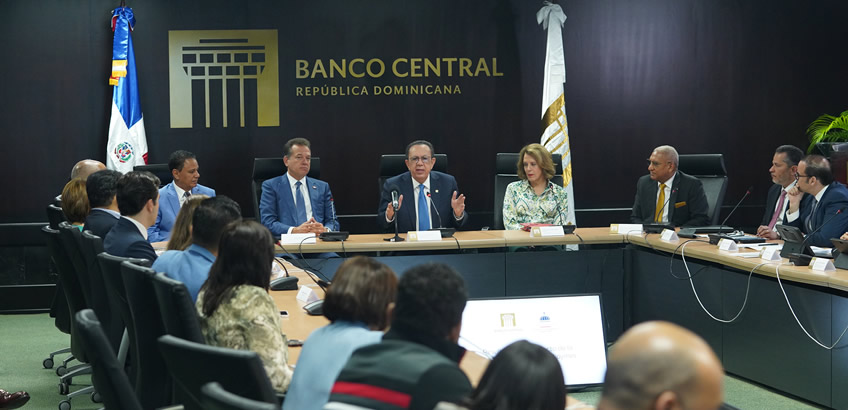
At a time when the government is taking actions for a major fiscal reform, Governor of the Central Bank Hector Valdez Albizu and Minister of Industry & Commerce Victor (Ito) Bisono presented findings on the importance of the MSMEs (MIPYMES in Spanish). Traditionally in the Dominican Republic, fiscal regimes has been drafted focused on taxation for big business, but smaller enterprises are the ones that most feel the brunt.
The National Survey on Micro, Small and Medium-Sized Enterprises (MSMEs) 2022-2023 study identified and classified over 470,000 establishments nationwide and found that MSMEs account for a substantial portion of the Dominican Republic’s economic activity, or 32% of the Gross Domestic Product.
According to the survey results, MSMEs employ a remarkable 3,052,449 individuals, representing 61.6% of the total workforce. This widespread employment impact is evident across all regions of the country.
Likewise, the study quantified MSMEs at 404,034 of the 470,527 businesses or 86% of all registered businesses in the Dominican Republic.
The study also shed light on the formalization status of MSMEs. Only 14.8% of MSMEs are formally registered with the National Taxpayer Registry (RNC). The remaining 85.2% operate informally. This highlights the need for continued efforts to promote formalization and strengthen the business environment for MSMEs that have skirted formalization due to the higher costs.
The study found that micro-businesses dominate the landscape, accounting for 94.2% of total establishments. Small and medium-sized enterprises comprise 4.5% and 1.3%, respectively.
In terms of regional distribution, the North or Cibao region holds the largest concentration of MSMEs (36.7%), followed by Greater Santo Domingo (33.2%), the South (17.6%), and the East (12.5%).
Read more in Spanish:
Banco Central
17 June 2024

